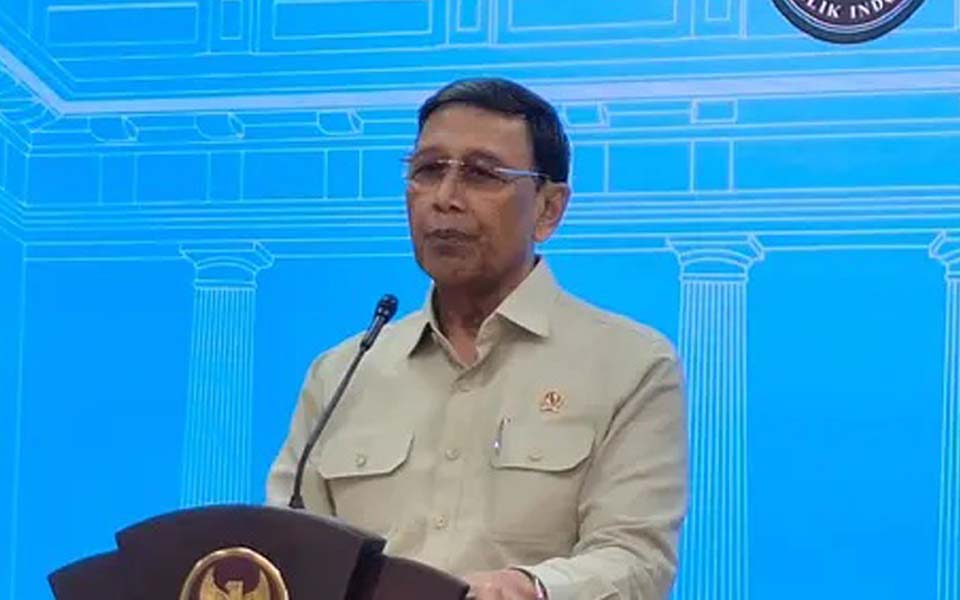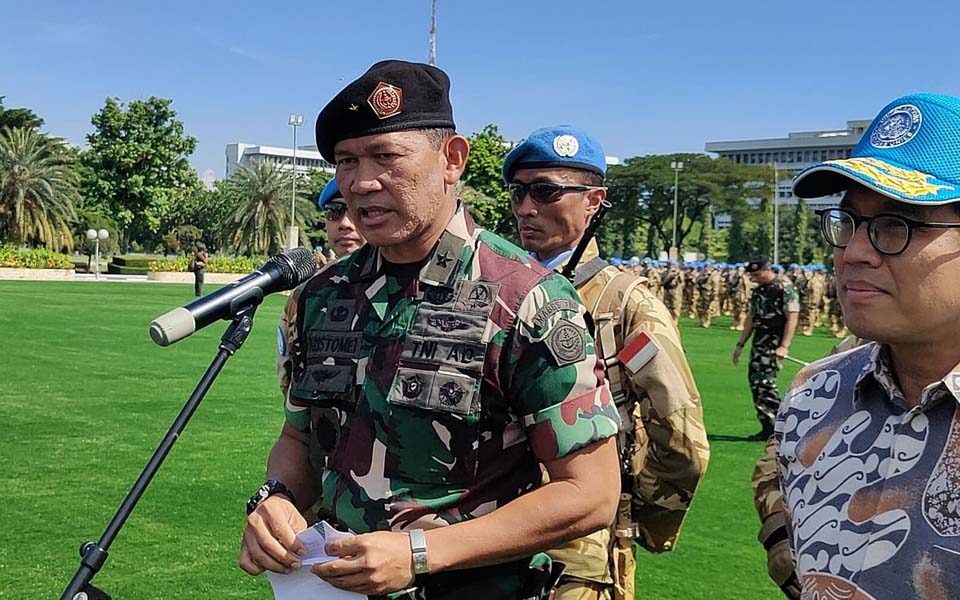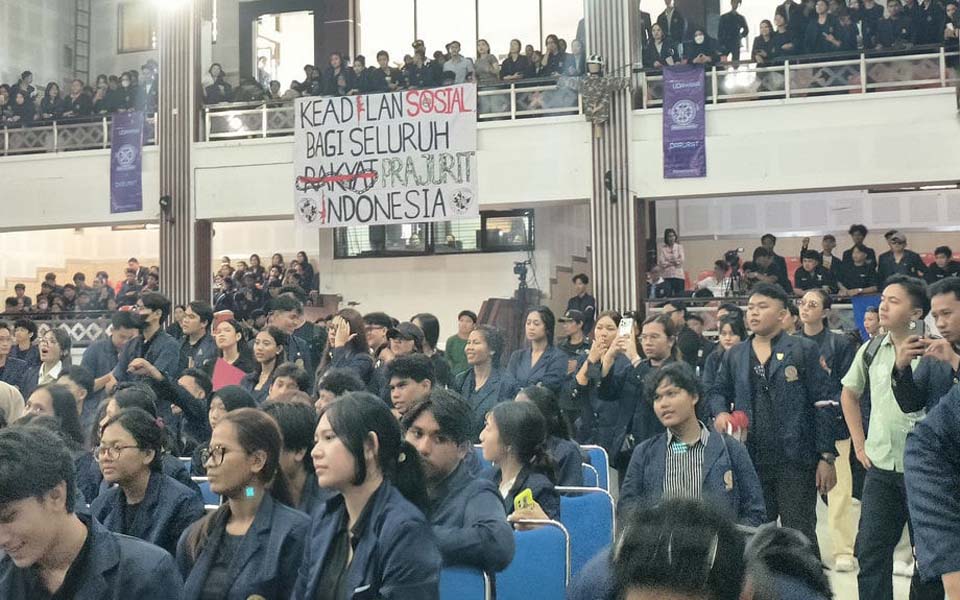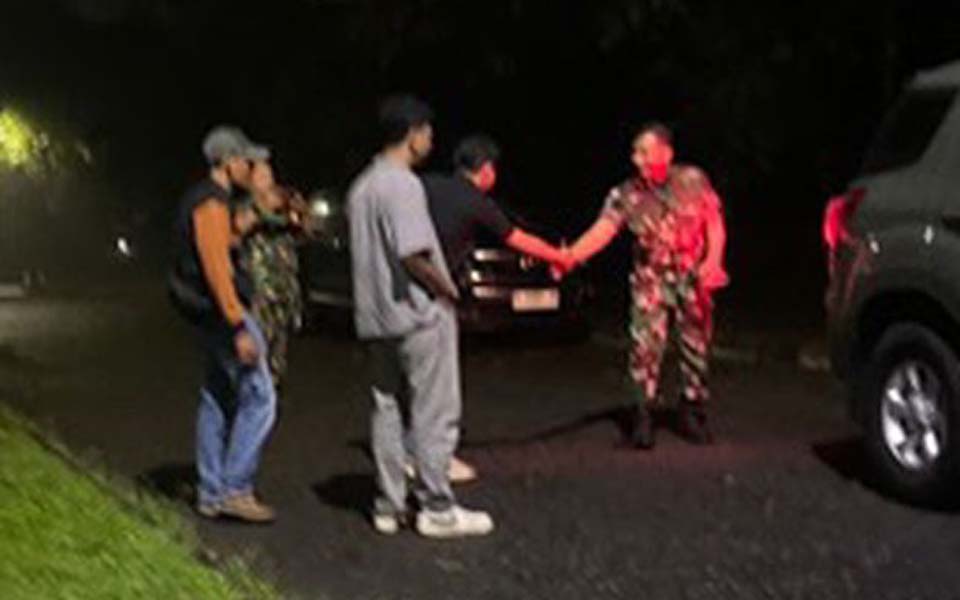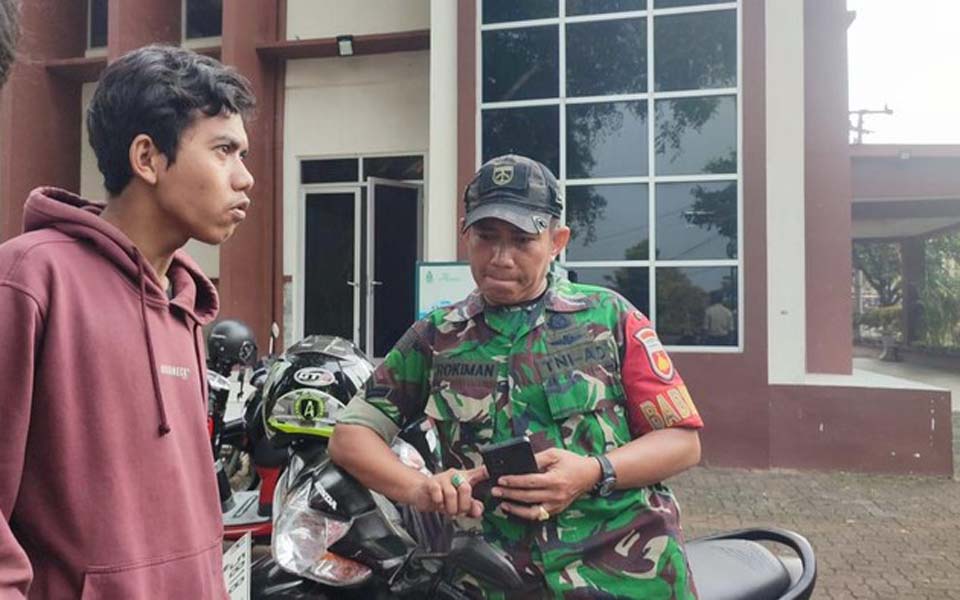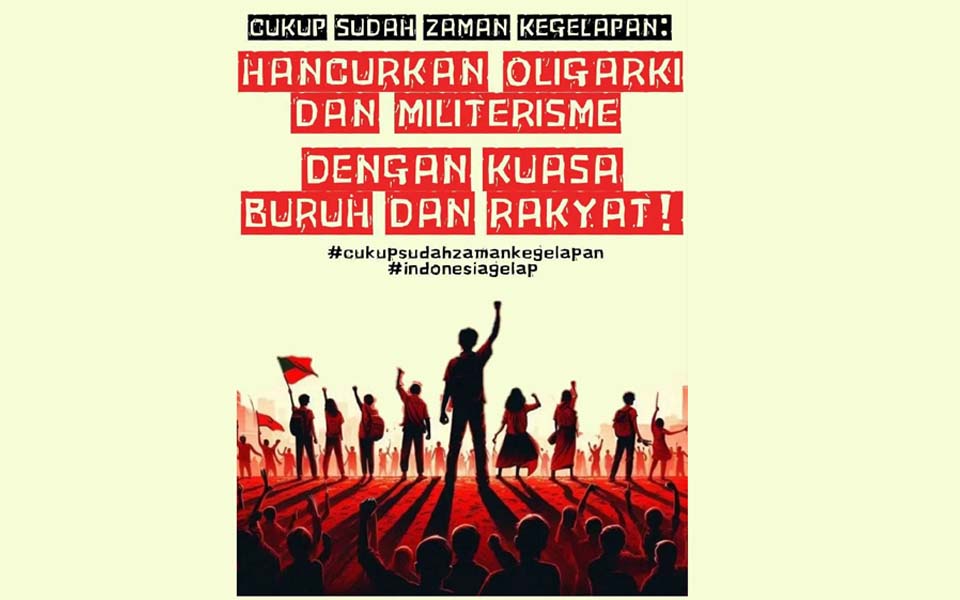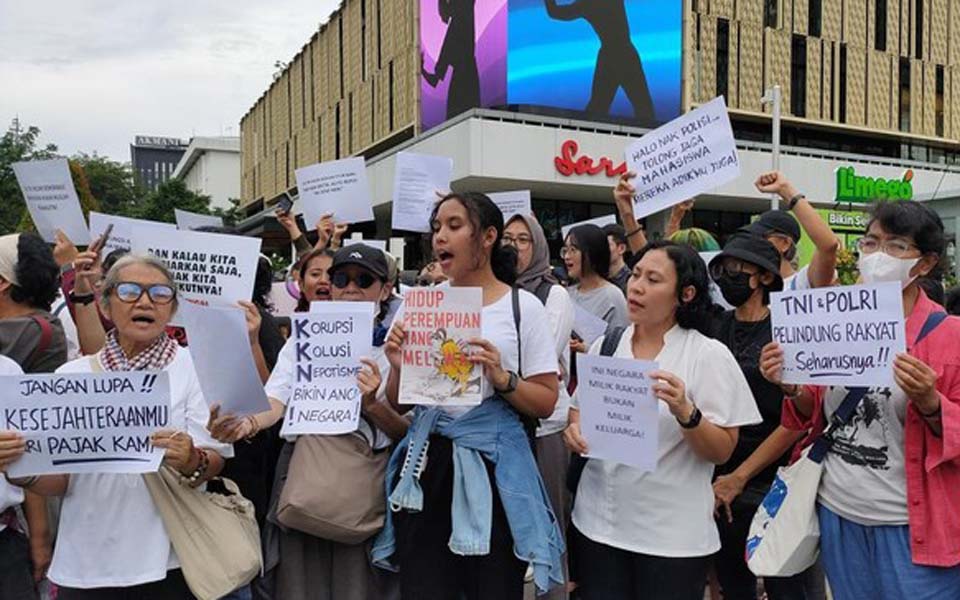Emmy Kuswandari, Jakarta – The minister of defense, Juwono Sudarsono, says that the civilian authorities are not yet strong enough to ensure political stability and national security. The presence of the TNI (Indonesian military) therefore is still needed, particularly in handling terrorism.
“I believe that the civilian authorities such as the national police, customs, immigration and the judiciary are not yet strong [enough] to support the creation of political stability and national security”, he said after attending a planning workshop on the draft State Intelligence Law in Jakarta on Wednesday October 12.
Sudarsono said that when the civilian authorities and society are strong enough to support the creation of political stability and national security the military’s involvement will be gradually reduced. He added that at lest three months would be needed to establish coordination between the TNI and the national police in handling terrorism.
“I don’t know what kind of formulation Mr. Syamsir (the director of the National Intelligence Agency, BIN – Ed.) has. But he is currently reorganising the working relationship between civilian and military intelligence so that they can each take on and coordinate [their tasks] properly”, he explained.
Such a formulation is necessary because up until now the respective intelligence units have had their own terrain and preferences so the director of BIN must coordinate this before a report is submitted to the president.
Speaking at the forum, Sudarsono said pressure is need from civil society so that the draft intelligence law can finalised quickly. Without pressure from civil society, Indonesia will not have an intelligence law until 2007 which would only be applied in 2008. “There must be strong pressure from the public so that the legislation process can be carried out quickly”, he said.
Sudarsono explained that to date it cannot be denied that many intelligence units are paid for by foreign parties in order that they protect their interests. “This happens because the country is not yet able to fulfil all of its budget [needs]”, he said.
The chairperson of the Intelligence Reform Working Group, Edy Prasetyono, says that pressure to finalise the intelligence law is needed immediately because there are situations which cannot be anticipated by the public and security forces. Also needed is a consideration of policies which places the actions of and the state intelligence services into a process of democratic consolidation which allows for transparency and accountability. Clear laws also need to exist.
[Translated by James Balowski.]






